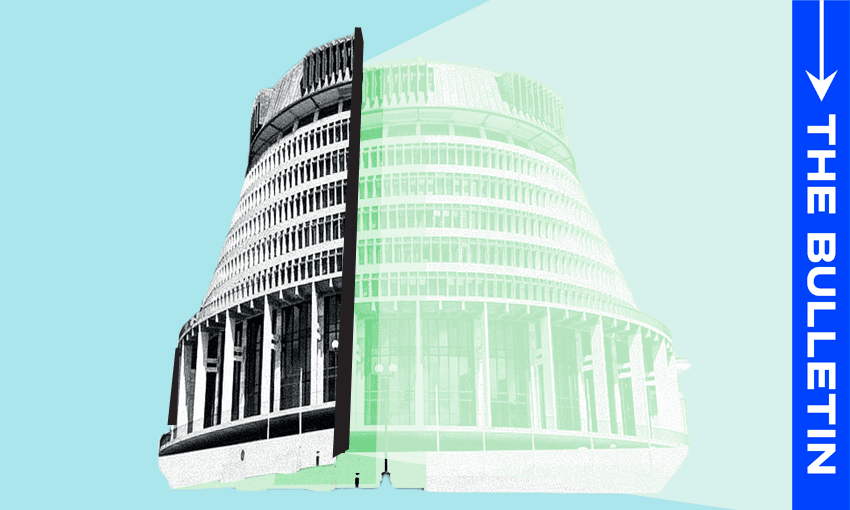A new investigation on the role of lobbyists raises fresh questions about whether we need better disclosure of who they are and who they work for, writes Anna Rawhiti-Connell in this excerpt from The Bulletin, The Spinoff’s morning news round-up. To receive The Bulletin in full each weekday, sign up here.
“The public interest is far too often subordinate to the narrow interests of the organisation”
The first report from a new investigation by RNZ’s Guyon Espiner yesterday detailed the hundreds of thousands of dollars of public money being spent on lobbying firms by universities, government agencies and State Owned Enterprises (SOEs). This morning on The Spinoff, Duncan Greive reflects on the banality of some of the advice given by those firms and the way the tactics deployed and the money being spent make the job of being a journalist harder. He acknowledges that the work of communications staff is skilled and highly important, but only if it’s done with the right intentions. “Based on Espiner’s reporting, the public interest is far too often subordinate to the narrow interests of the organisation, or a senior leader’s desire to simply avoid engaging with the media at all,” he writes.
“Wondering if you had time this Wednesday for a quick beer”
This morning’s instalment of Espiner’s investigation details how Andrew Kirton, prime minister Chris Hipkins’ chief of staff, worked for lobbying firm Anacta. Acting on behalf of liquor industry giants Asahi and Lion, the firm lobbied the government on the recently deferred container return recycling scheme. Kirton resigned from Anacta a day before it was announced he would be chief of staff in Hipkins’ office. Documents obtained by RNZ show Kirton emailed officials in environment minister David Parker’s office in May 2022 setting up meetings for Asahi. “Wondering if you had time this Wednesday for a quick beer,” he wrote. Asahi and Lion signed a letter in June 2022 opposing the government’s container return scheme plan.
New Zealand has no public lobbying register or ‘cool off’ periods
Hipkins responded to questions prompted by Espiner’s investigation at his post-cabinet press conference yesterday. When asked whether there should be a stand down period between having access to Cabinet and ministers before going into a lobbying system, Hipkins said “everyone is entitled to earn a living.” That’s not untrue or unfair. New Zealand is a small country and the likelihood of former politicians and political operators engaging in a dramatic career transformation when they leave a job is low. But it does raise questions about why we don’t have more formal transparency. As Espiner writes, New Zealand has no public lobbying register, no obligation for lobbying firms to disclose their clients and is one of a small number of developed countries where there are no “cool off” periods between government and lobbying jobs. A story in the Guardian yesterday about tobacco companies heightening lobbying efforts amid vaping law reform work in Australia was enabled by the public disclosure provided by its federal lobbyist register, a publicly searchable database that lobbyists there are required to be on.
National call for Labour to come clean
One previous attempt has been made to regulate lobbying in New Zealand by former Green MP Holly Walker who introduced the Lobbying Disclosure Bill in 2012. That suffered from concerns that the definition of lobbyists was too wide and never made it past a first reading in parliament. Following Kris Faafoi’s resignation as a minister in 2022 and subsequent news that he would be starting his own consultancy firm that “offers government relations and public relations services”, the National party called for a cooling off period. Yesterday, National’s Simeon Brown called for Labour to “come clean on the use of external lobbying firms within government departments.” It’s fair to note that there was a fairly extensive list of people, many defined as lobbyists, who had swipe card access to parliament when National was last in government in 2017.
